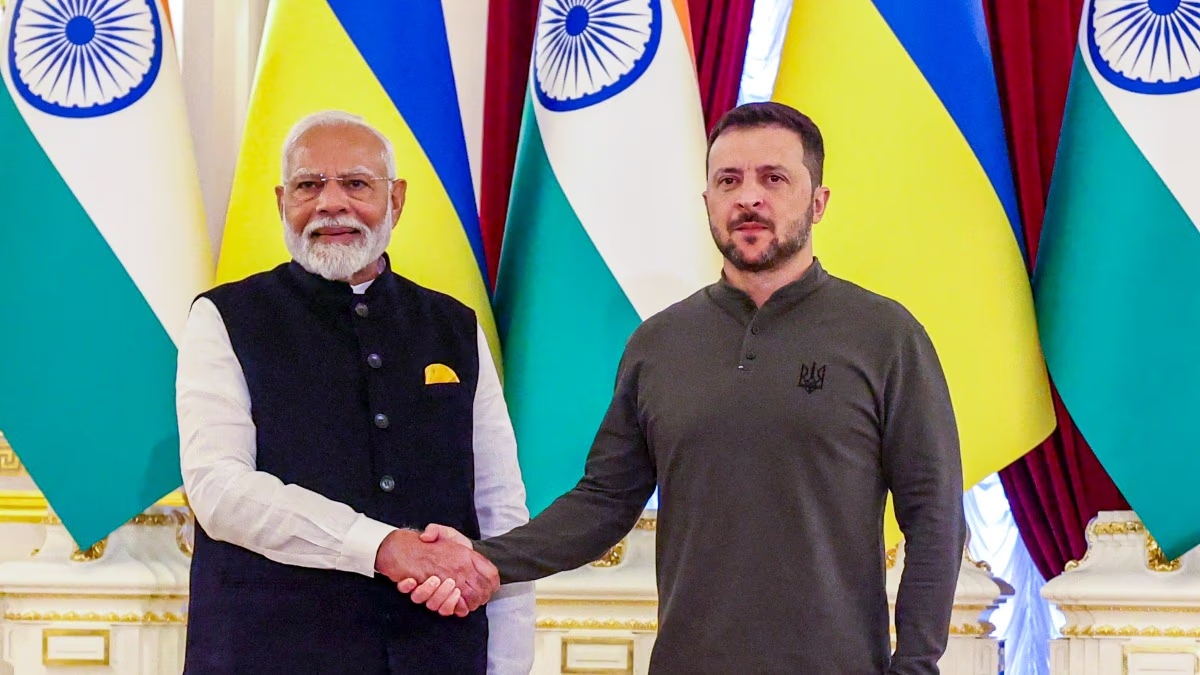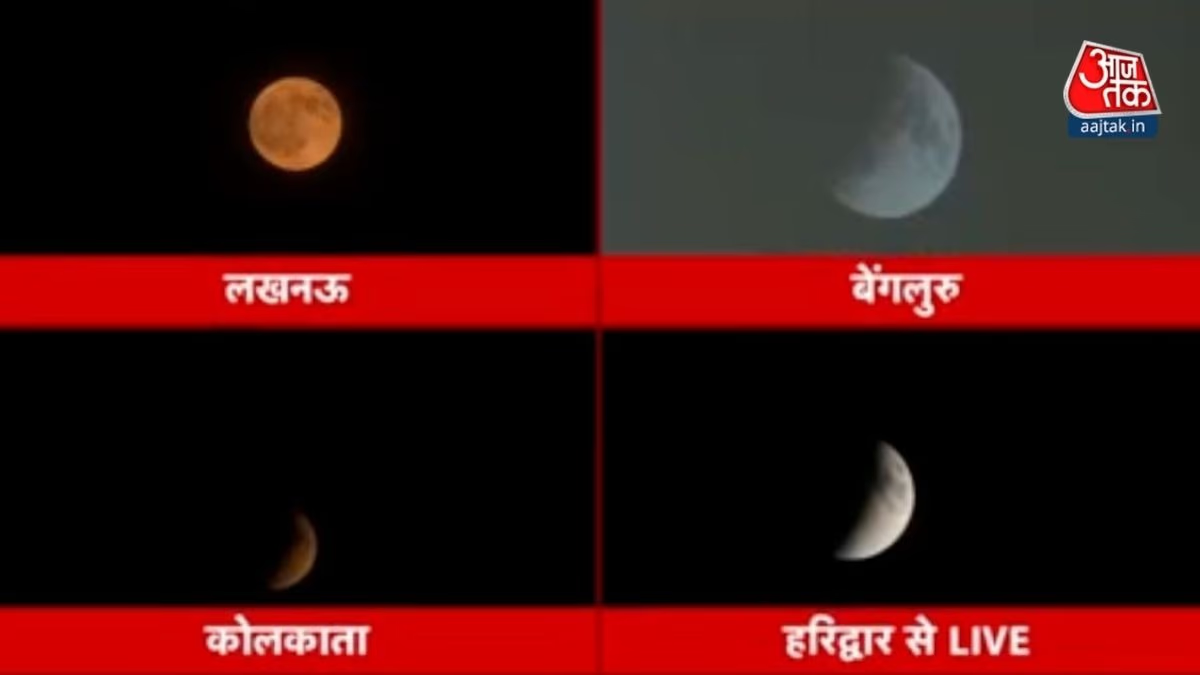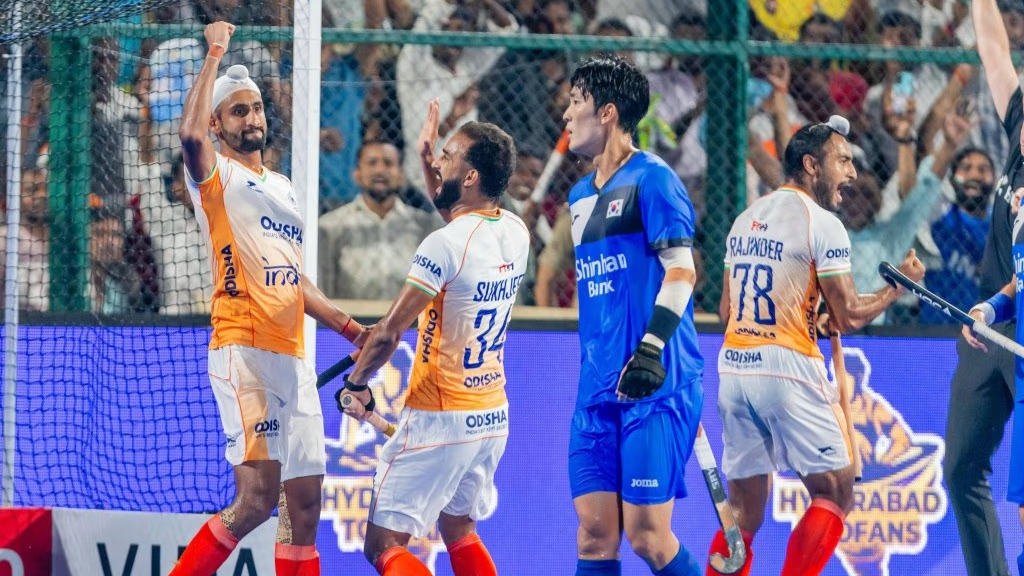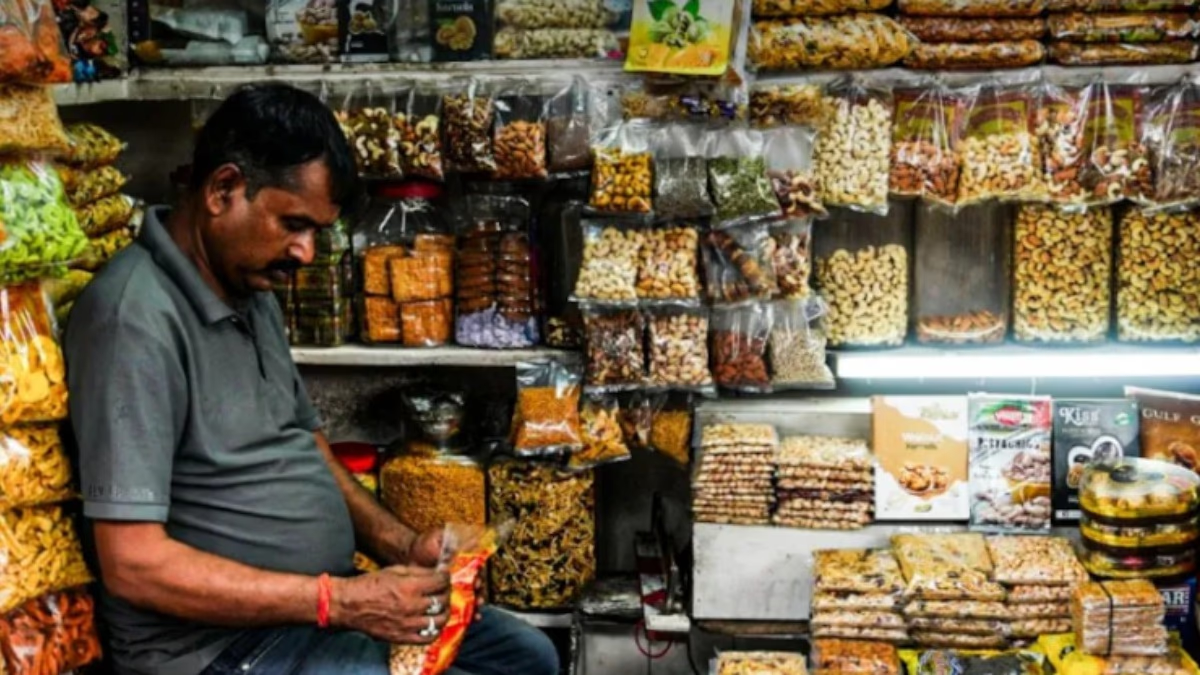Indian Prime Minister Narendra Modi, after his tour of Poland, landed in Ukraine on Friday, August 24, and met with President Volodymyr Zelensky. Both leaders shook hands, and then Narendra Modi embraced the Ukrainian president warmly. PM Modi invited Zelensky to visit India as well. During the meeting, Narendra Modi discussed the end of the ongoing war between Russia and Ukraine.
Prime Minister Modi stated, 'The path to resolution lies only through dialogue and diplomacy; we must move in this direction without wasting time. Both parties should sit together to find a way out of this crisis.' He urged Zelensky to engage in talks with Russia.
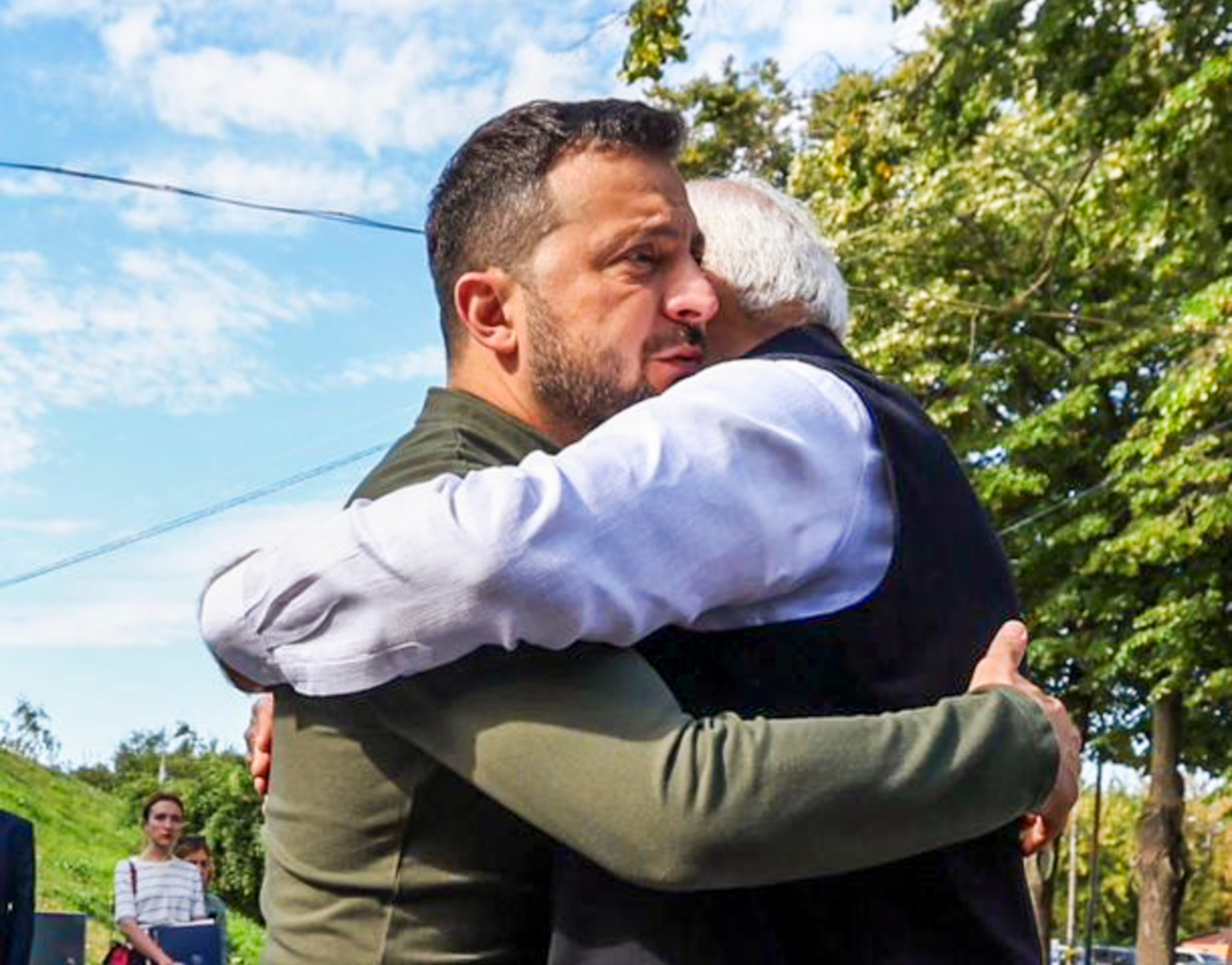
Source: aajtak
Prime Minister Narendra Modi assured Zelensky, 'I assure you that India is ready to play any active role in efforts towards peace. If I can personally contribute in any way, I will do so as a friend.'
PM Modi emphasized that 'dialogue and diplomacy' are the only solutions and personally offered to mediate peace with Russia as a friend. During a joint statement in Kyiv, he stressed, 'India has never been neutral in this war; we stand for peace.'
Meanwhile, Ukrainian President Volodymyr Zelensky expressed his expectation for India's support in the war with Russia and urged not to maintain a 'balanced stance' in this crisis. He stated, 'Ending the war and establishing just peace is Ukraine's priority.'
Prime Minister Narendra Modi visited Russia last month (July), which garnered global attention. His Moscow visit coincided with the bombing of a children's hospital in Kyiv, which angered Ukraine and Western countries. PM Modi also embraced Russian President Vladimir Putin, which drew sharp reactions from the Western nations and Zelensky. The Ukrainian president called this meeting 'a major disappointment and a catastrophic blow for peace efforts.'
Zelensky specifically criticized, 'Watching the leader of the world's largest democracy embrace the most notorious criminal in Moscow is disheartening.'
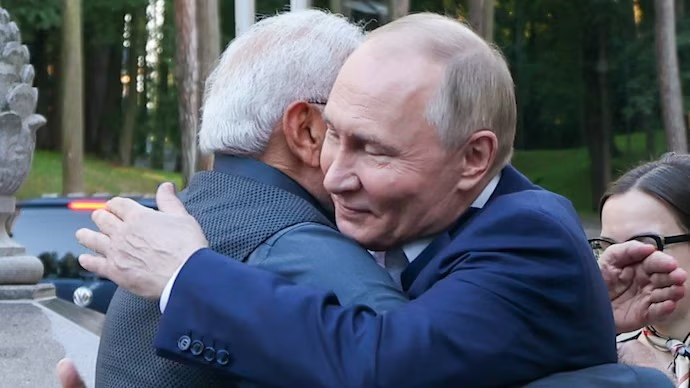
Source: aajtak
Hence, PM Modi's visit to Kyiv is seen as an attempt to create diplomatic balance across various fields. Foreign Minister Jaishankar also described hugging as a part of 'Indian culture.'
However, a stark difference was noted during PM Modi's visits to Ukraine and Russia. During his Moscow visit, Narendra Modi paid homage at the Tomb of the Unknown Soldier but did not visit any memorials of fallen Russian soldiers. In Kyiv, he toured the National Museum's martyr exhibition dedicated to children, commemorating the young lives lost in the conflict.
'India cannot compromise its national interest...'
Professor Ummu Salma Bawa of Jawaharlal Nehru University's Centre of European Studies in Delhi told aajtak.in, 'India cannot take sides; it will operate under its diplomacy. National interests come first for India. Maintaining relationships with both countries is crucial.' She further added that over 75% of India's sunflower oil imports come from Ukraine, and over 20,000 students were studying medicine there. For India, both Russia and Ukraine are important, as PM Modi stated, 'There are two sides here - war and peace; we stand for peace.' This indicates India's non-partisan stance on the conflict.
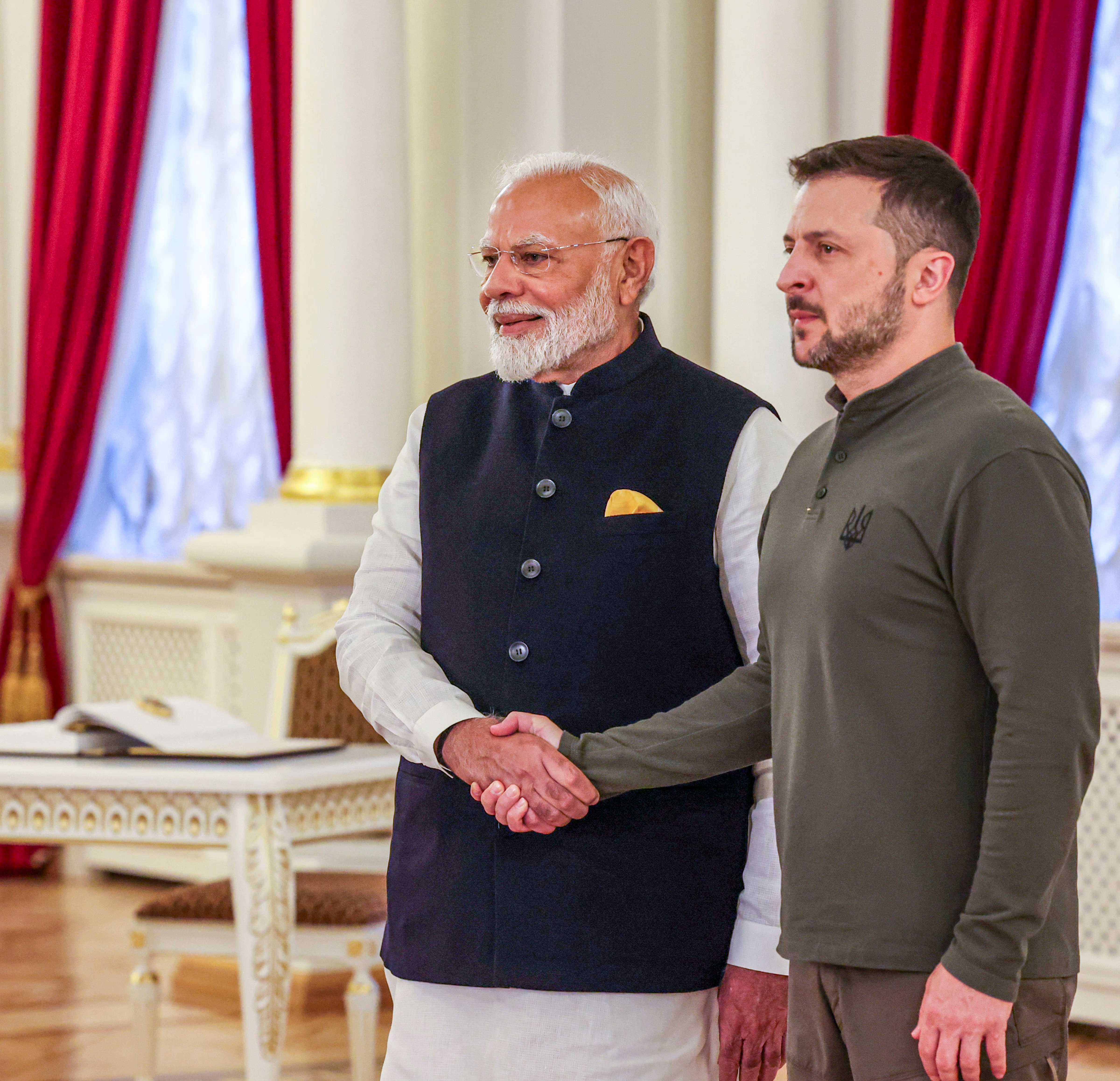
Source: aajtak
'Zelensky cannot dictate India's foreign policy...'
Professor Mohammad Mohibul Haque of Aligarh Muslim University's International Politics Department stated, 'Zelensky cannot dictate what India's foreign policy should be. We cannot compromise our national interest. If Zelensky expects India to stand like NATO and the US, that's not possible since Russia has been a good partner since 1947.'
He further mentioned that India cannot call Russia an invader for Ukraine. If India sides with Zelensky, how will talks happen? Russia respects India's position. This is a good opportunity for India to bring Russia and Ukraine to the negotiating table and prevent further damage from the war.
After the USSR collapsed in 1991, Ukraine was born. PM Modi is the first Indian Prime Minister to visit Ukraine post-independence. Indian Foreign Minister S. Jaishankar described PM Modi's visit to Ukraine as a historic event at a press conference in Kyiv.
Ukrainian President Volodymyr Zelensky stated, 'Prime Minister Narendra Modi's first visit to Ukraine after our independence has made history. India and Ukraine have signed four documents across various sectors.' According to reports, authorities indicated that these agreements will ensure cooperation in agriculture, food industry, medical, culture, and humanitarian aid sectors.
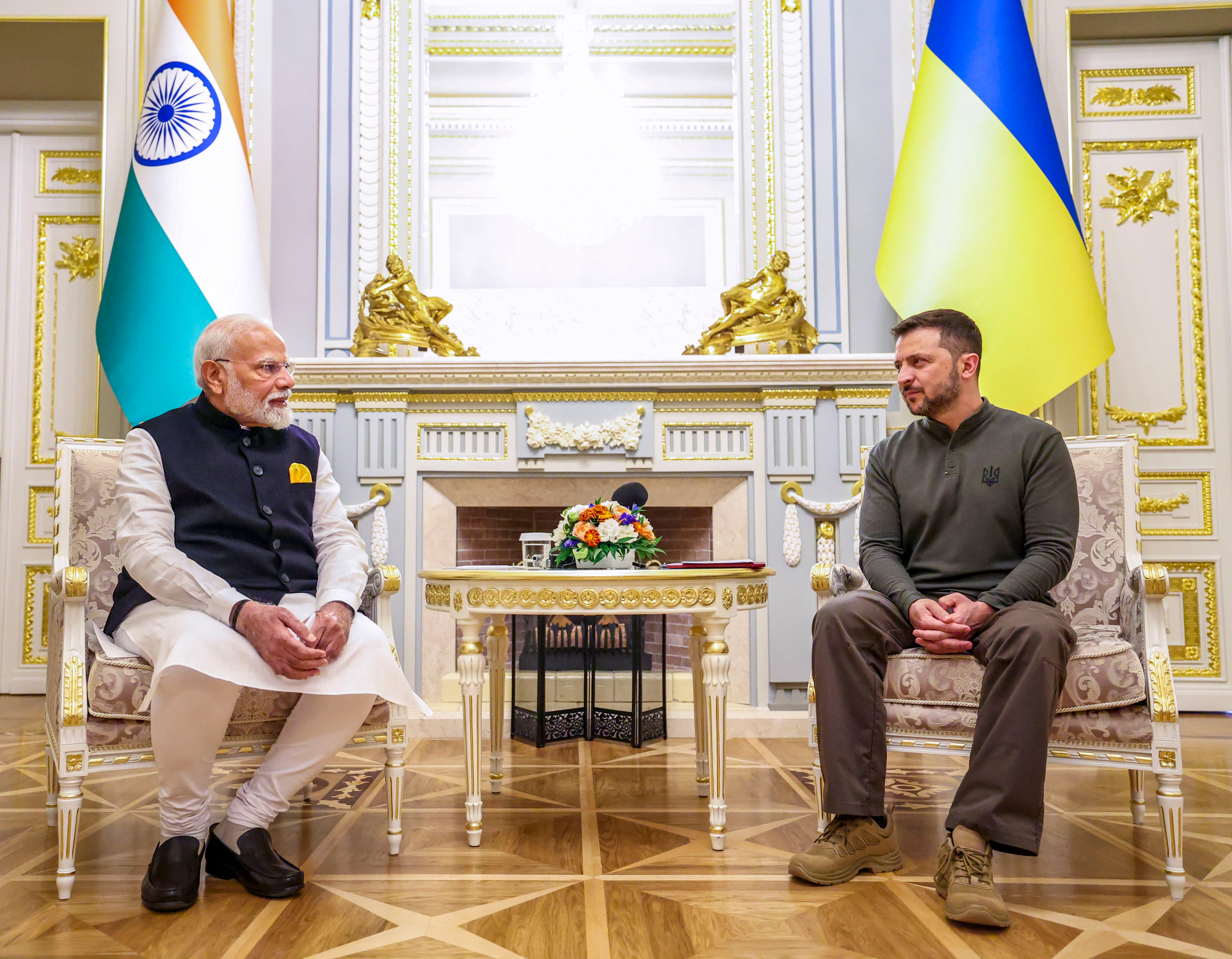
Source: aajtak
Since the Russia-Ukraine war began in February 2022, bilateral relations have declined. According to the Commerce Ministry's statistics, India's trade volume with Ukraine dropped from $3.39 billion in 2021-22 to $0.78 billion and $0.71 billion in the subsequent years.
During PM Modi's visit to Ukraine, both parties agreed to find all possible ways to not only restore but also strengthen bilateral trade and economic relations to pre-conflict levels through the Indian-Ukrainian Intergovernmental Commission (IGC).
'Only India can achieve this…'
Professor Ummu Salma Bawa commented, 'The geopolitical situation in Europe has changed over the past two and a half years due to the ongoing Russia-Ukraine war. Ukraine has full support from Western countries, while Russia faces various sanctions. PM Modi's visit to Poland and Ukraine is significant and historic as only India can talk to both sides. It is hoped that something positive can emerge from this visit and peace can be established.'
'Russia is in defensive mode…'
Professor Mohammad Mohibul Haque stated, 'For the first time since World War II, there has been an intrusion into Russian territory, with Ukrainian forces entering. As a result, Russia is now in a defensive mode, making this a crucial time to bring Russia and Ukraine to the negotiating table. PM Modi's visit to Ukraine is vital. Backdoor diplomacy might have indicated something from Russia before this visit.'
He further added that PM Modi's visit to Ukraine is particularly important because, during the Cold War era, India led the Non-Aligned Movement (NAM), commanding significant respect in the international community. While the current geopolitical landscape is different, with Russia as a military and energy superpower and NATO as an economic and military powerhouse, India cannot ignore either if it wants to play a global role. India's positioning is accepted in both Russia and Ukraine, and through its diplomacy, India can attract global attention.
British geopolitical thinker Halford Mackinder stated at the start of the 20th century, 'He who rules Eastern Europe commands the Heartland. He who commands the Heartland rules the World-Island. He who rules the World-Island rules the world.'
Like Ukraine, this is the first Indian Prime Minister's visit to Poland since 1979 when Morarji Desai visited Warsaw. Since Ukraine's emergence post the Soviet Union collapse, no other Indian Prime Minister has visited Kyiv. Thus, PM Modi's Europe tour amidst the war holds significant importance.
Prime Minister Narendra Modi's visit to Poland and Ukraine this week is vital from a European perspective as India has mostly focused on its relations with the four major European countries- Russia, Germany, France, and the UK. However, over the last decade, India has tried to expand its reach to different parts of Europe. During his first two terms as Prime Minister, Narendra Modi visited Europe 27 times and welcomed 37 European leaders.
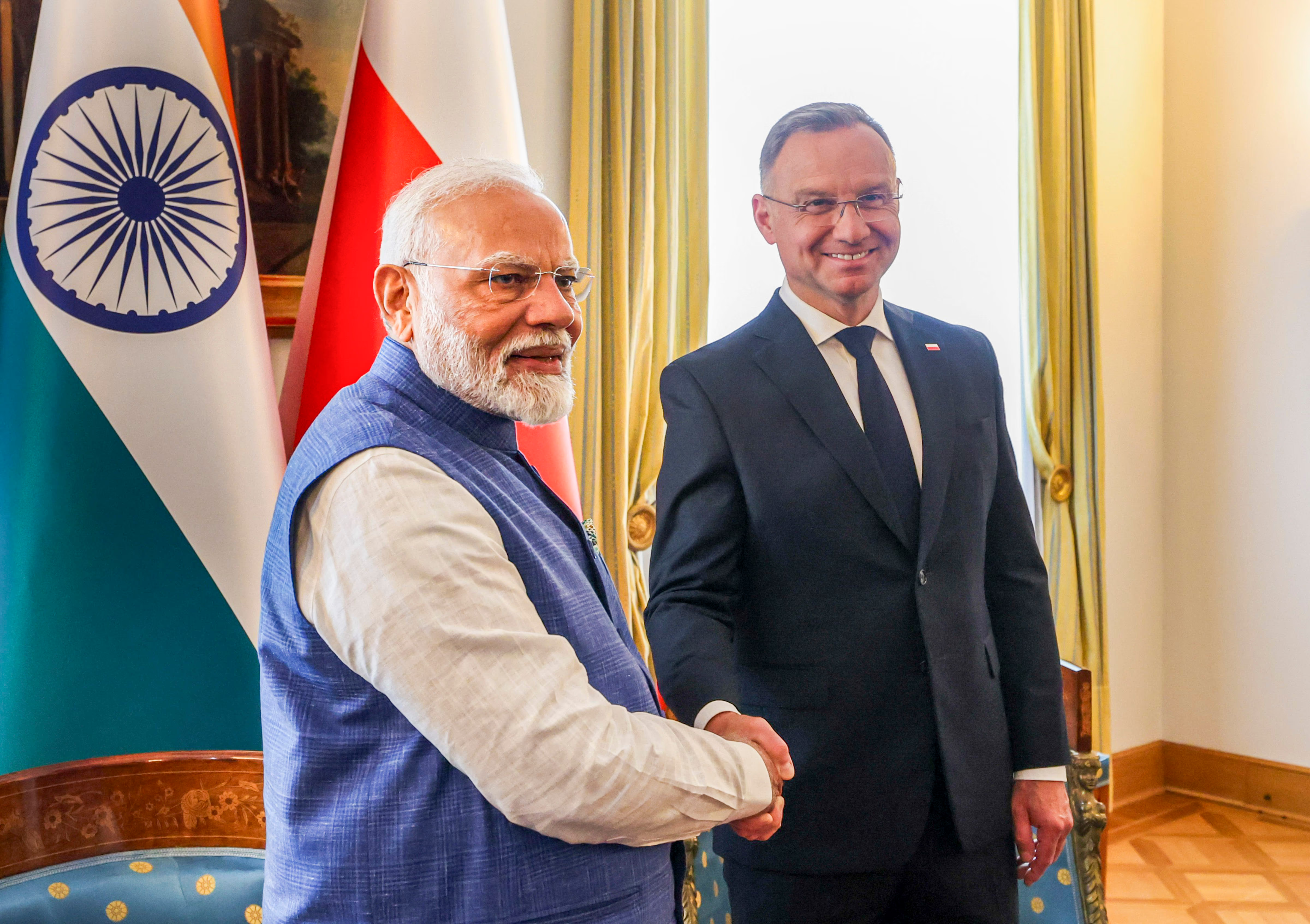
Source: aajtak
India Takes Significant Steps
India sought to resolve long-pending issues with key partners like Italy (in the Marines case), which had halted annual summits between Delhi and Brussels. The Modi government restarted trade talks with the European Union, initiated a trade and investment agreement with the EFTA group (The European Free Trade Association), established a Trade and Technology Council with Europe, launched a Defense Industrial Roadmap with France, commenced regional security operations with Europe in the Indo-Pacific, and unveiled the India-Middle East-Europe Corridor (IMEC). India has also started collective diplomacy with several European sub-regions, including Nordic and Baltic regions.
Last month (July), PM Modi visited Austria. This was the first visit from India since former Prime Minister Indira Gandhi's visit to Austria in June 1983, almost 41 years ago. India's official relations with Austria were established in 1949. Prime Minister Jawaharlal Nehru's visit to Austria in 1955 was the first visit by a foreign leader to the newly independent country.
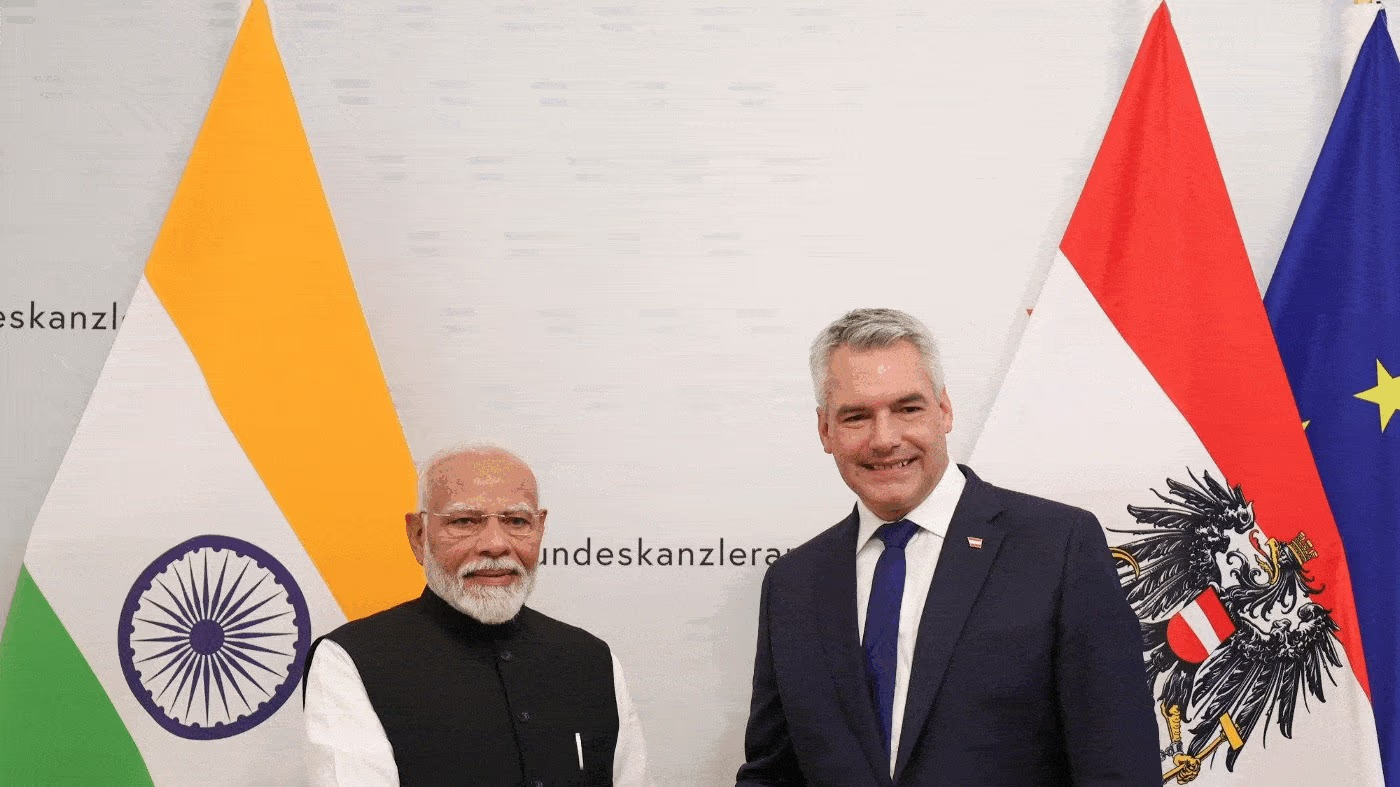
Source: aajtak
According to worldometers.info, Poland and Ukraine rank seventh and eighth in European population rankings (including Russia). According to the World Bank, Poland is the largest economy in Central Europe. Additionally, from a European perspective, it is among the top countries with significant economic strength.
Central and Eastern Europe Geographically Important
Professor Ummu Salma Bawa remarked, 'Looking at Central and Eastern Europe, India has had a 70-year relationship with Poland, recently upgraded to a strategic partnership, increasing its significance. As for Western Europe, India has had a strategic partnership with France since 1997 and good relations with Germany. Central and Eastern Europe have become geographically strategic spaces for current global affairs. Poland, in particular, holds an important position in both the North-South Corridor and the East-West Corridor. New Delhi has direct flights to Poland's capital.'
She added that looking at Eastern Europe, Poland is an emerging economy developing rapidly. It is significant for India in terms of investment, and PM Modi has also stated that India wants Poland to invest in India.
Professor Mohibul Haque further commented that after two and a half years of war, Central and Eastern Europe have transformed significantly, with Sweden and Finland recently joining NATO.
Establishing a Footing in Central Europe is Crucial…
Professor Mohibul Haque stated, 'Regions like Poland, Austria, Eurasia, and Central Europe, which were part of different blocs during the Cold War era, are crucial for India to establish a presence in. These regions' markets and collaborations are critical for India's economic diplomacy. Hence, India's efforts to establish a strong presence in these areas are strategic and necessary.'
Professor Ummu Salma Bawa remarked, 'Relations between two nations are bilateral and need to be assessed based on their specific metrics. India's relationship with Russia is historical and will not be affected by the Ukraine visit. When India needed support in the 1970s, the Soviet Union was there. This historical bond creates a significant trust factor between the two nations.'
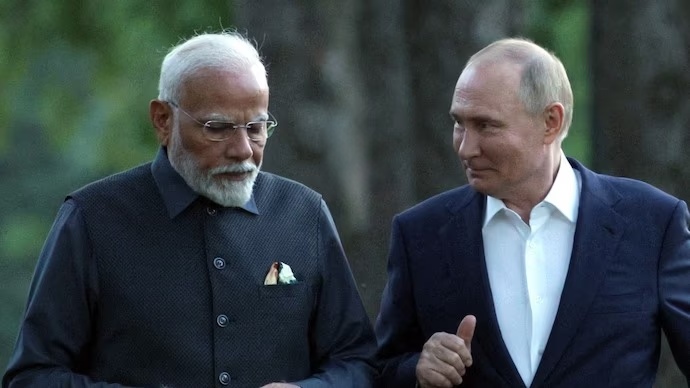
Source: aajtak
She further noted that India's relationships with Western countries are also historic, including France and Germany. India's relationship with Russia, based on trust, stays intact despite geographic fluctuations.
Russia Cannot Afford Discontent with India…
Professor Mohammad Mohibul Haque stated, 'PM Modi's visit to Ukraine will not impact India’s relations with Russia negatively as India has not taken any adverse actions. Zelensky might have hoped for a strong statement from India, but we have communicated our stance carefully.'
He further emphasized that Russia cannot afford discontent with India. The most critical point is that India is more crucial for Russia than vice versa. The friendship between Russia and India will remain unaffected by the Ukraine visit.
